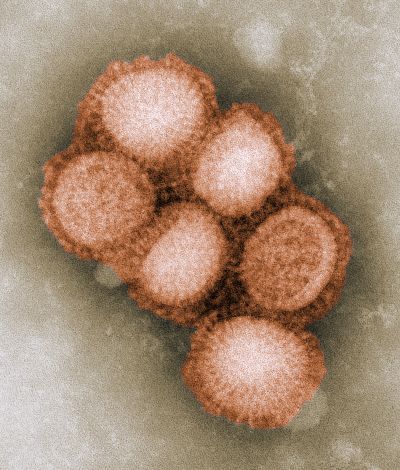Swine flu vaccine effective despite mutations: experts

Swine flu vaccines are still effective despite reported cases of mutations in the A(H1N1) virus, health experts in Europe and North America said Saturday.
Bruno Lina, director of the national flu virus monitoring centre for southern France, said the mutation of the virus - blamed for around 6,750 deaths so far worldwide - came as no surprise.
"It was expected, it was announced, and it will happen again," Lina told AFP, adding: "That does not change anything with regard to treatment and vaccines."
In the United States, Anne Schuchat of the Centres for Disease Control (CDC) said the mutation would have no impact on the effectiveness of the swine flu vaccine or the anti-virals.
The experts' comments came a day after the World Health Organization announced that a mutation had been found in swine flu virus samples taken following the first two deaths from the pandemic in Norway.
However, the Geneva-based UN agency stressed that the mutation did not appear to cause a more contagious or more dangerous form of A(H1N1).
It also revealed that a similar mutation had been observed in Brazil, China, Japan, Mexico, Ukraine and the United States as early as April.
The WHO underlined that there was no evidence of more infections or more deaths as a result, while antivirals used to treat severe flu - oseltamivir (Tamiflu) and zanamivir (Relenza) - are effective on the mutated virus.
"Studies show that currently available pandemic vaccines confer protection," it added, as mass vaccine campaigns slowly gain ground in the northern hemisphere.
That view was echoed opn Saturday by France's health chief, Didier Houssin, who said in a radio interview that the ability of the vaccine to induce an immune reaction is not affected by the mutation, "so the vaccines remain effective".
He added that in anticipation of a mutation, "a certain number of our vaccines are vaccines with an additive," which expands the range of effectiveness in being able to act against a slightly modified virus.
Scientists are nevertheless concerned that mutations in flu viruses could cause a more virulent and deadly pandemic flu.
In the cases observed in Norway, the mutation could potentially allow the virus to latch onto the pulmonary cells - that is, deep inside the lungs, which is generally considered a more dangerous form.
"At the moment we are purely at a descriptive stage," Lina said.#
"It will have to be verified if these viruses have acquired a particular characteristic which could potentially make them more likely and more easily to take a pulmonary form."
On Friday, World Health Organization data showed that around 6,750 people had died from swine flu since the virus was first uncovered in Mexico and the United States in April.
vm/boc/rom
Join our commenting forum
Join thought-provoking conversations, follow other Independent readers and see their replies
Comments
Bookmark popover
Removed from bookmarks